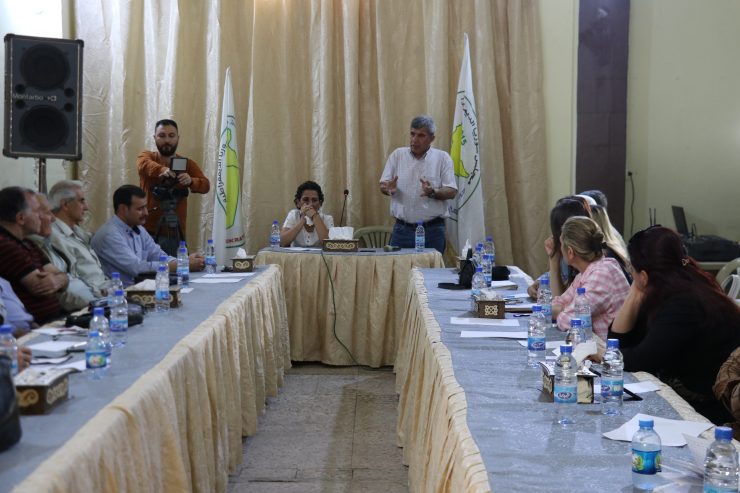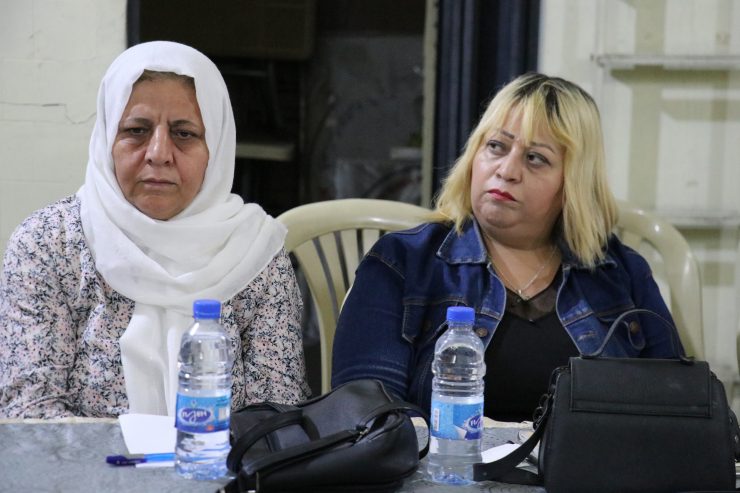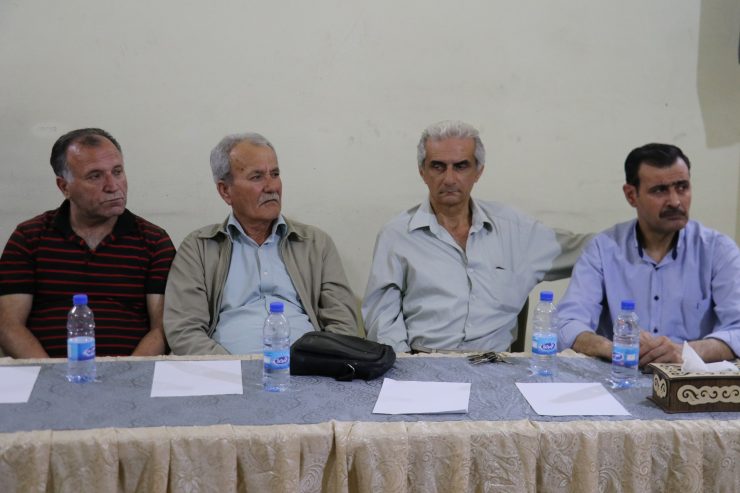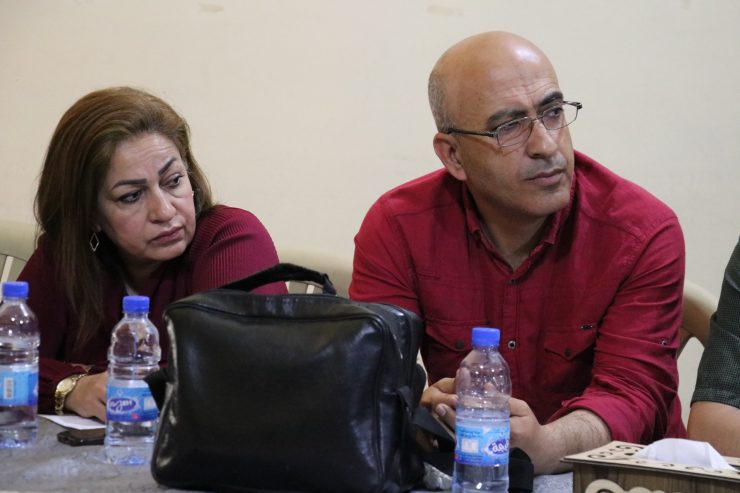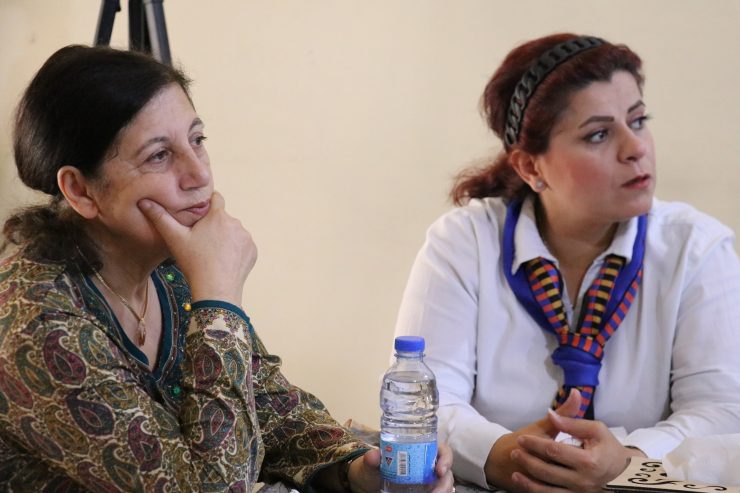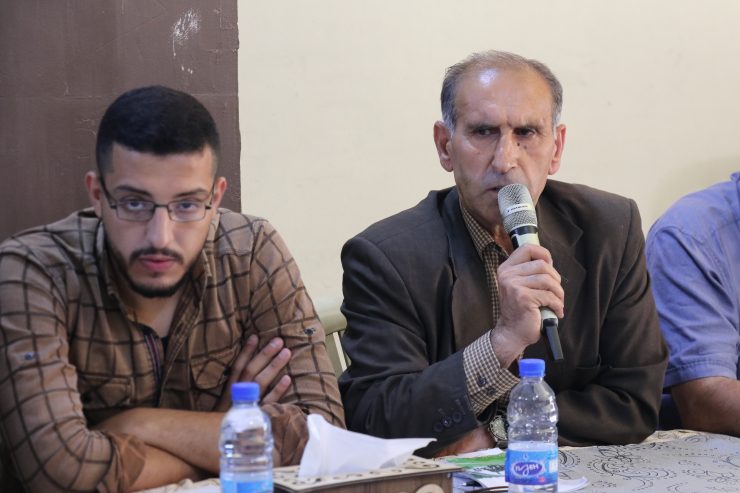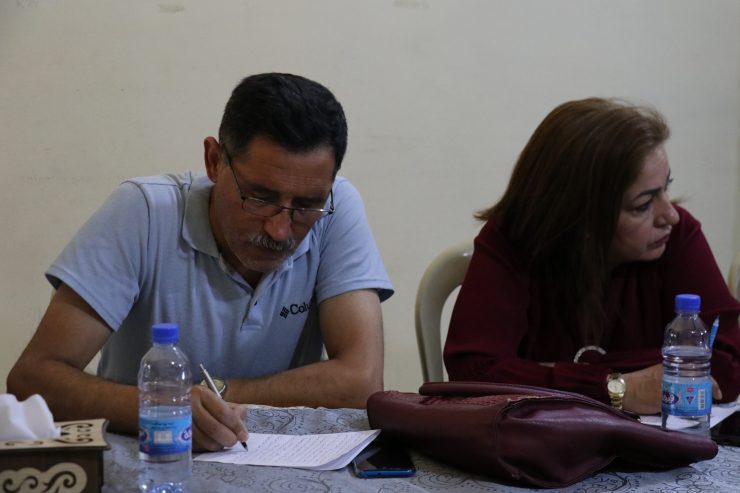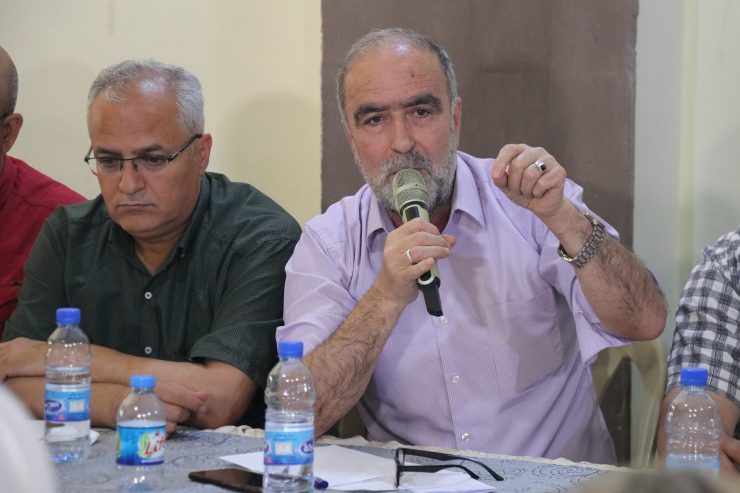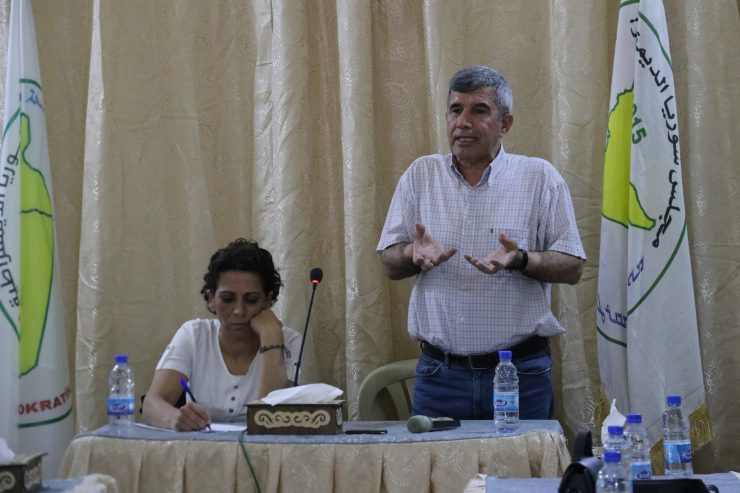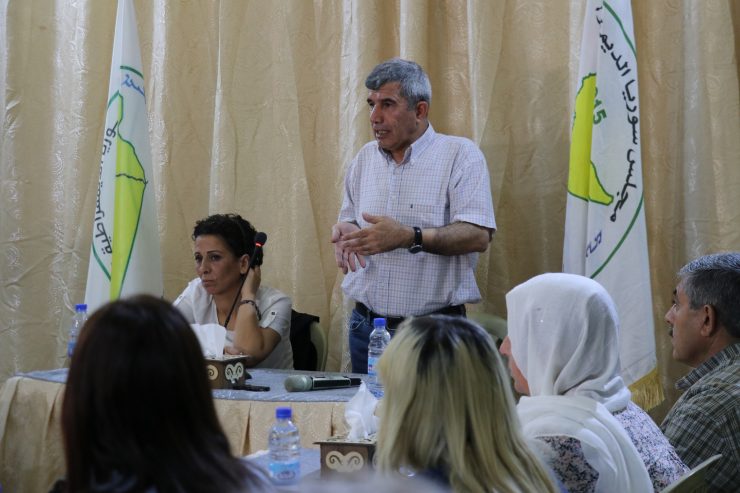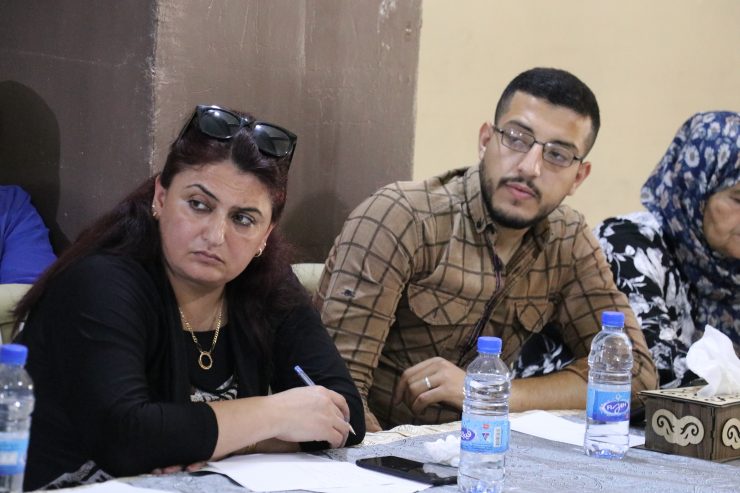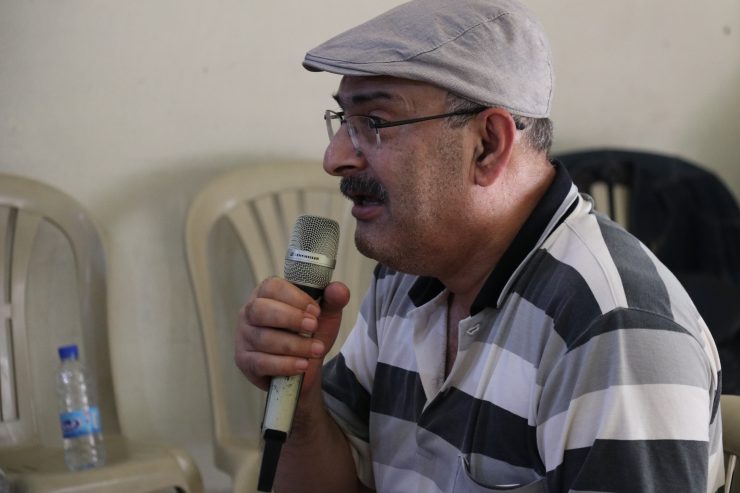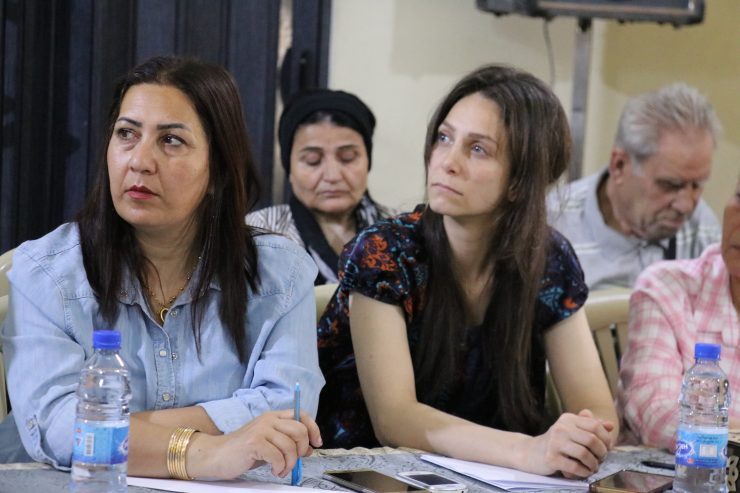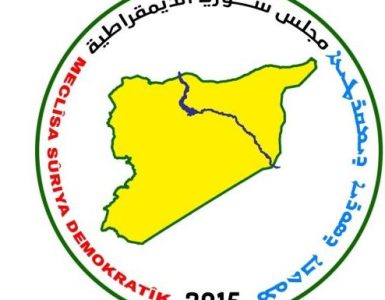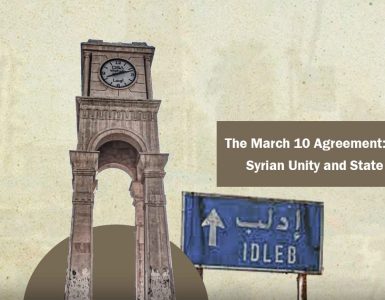Today, a wide range of politicians and intellectuals discussed the Arab normalization with Damascus and its political repercussions during a dialogue seminar organized by the Syrian Democratic Council.
The dialogue seminar is taken place at the meeting hall of the council in Al-Sheikh Maqsoud neighborhood in the city of Aleppo, with the participation of representatives including political parties, figures, and intellectuals.
Hassan Muhammad Ali, the Co-Chair of the Relations Bureau and a member of the Executive Body of the Syrian Democratic Council, spoke about the current developments regarding the Arab normalization tracks with the authority in Damascus, the accompanying changes, and their political implications on the Syrian issue.
Muhammad Ali expressed the readiness of the Syrian Democratic Council to cooperate with all countries that seek and make efforts on the issue of normalization, but on the condition that no regions are marginalized at the expense of others, and that normalization serves the interests of the Syrian people and not at their expense.
He emphasized the importance of coordination between the normalization process and the UN Resolution 2254 for a comprehensive political resolution and sustainable settlement in Syria, as well as the importance of dialogue among the various Syrian national parties.
On the other hand, the Syrian political writer and journalist, Jameel Rasheed, did not express optimism about the Arab normalization process with Damascus. He considered it as a containment process more than a normalization process, especially after the path of the Syrian Revolution was eliminated.
“Arab countries are attempting, through normalization, to make breakthroughs on the Syrian crisis in order to be effective against the Iranian and Russian expansion. This comes within the framework of new alignments and alliances in the region, but they will not have a positive impact on resolving the Syrian crisis.” He added.
As for the teacher “Kifah Muhammed”, she pointed out that the Syrian government has not changed its policy, nor the reasons that led to the suspension of its membership in the Arab League have changed. It has also not changed its policy towards the decisions of the United Nations. Therefore, the Arab normalization with Damascus must be based on conditions and steps towards change, rather than a pointless Arab normalization.
Regarding the resolution for the crisis in Syria, the political writer “Abdulaziz Hamdoush” emphasized the importance of finding a resolution through internal communications rather than external ones because any new external intervention will complicate the crisis. Especially since all countries seek their own interests rather than the interests of the Syrian people, and this is an evident case regarding the direct impact of political changes on the daily lives of Syrians.
In this context, the Co-Administrator of the Aleppo Cultural Forum, “Ahmed Birehat,” stated that the correct stance on this situation is for sincere national efforts to be directed towards unifying and intensifying efforts, formulating serious visions and positions to confront the existing occupations in Syria, and for contributing to the resolution of Syria’s national issues in their political, social, and economic dimensions, with a comprehensive vision and according to a social contract and common national interest, developing a comprehensive project that serves the interests of the people.
Regarding the Arab normalization with Damascus and Damascus’ return to the Arab League, most participations and discussions emphasized the necessity for this normalization to serve the interests of the Syrian people, meet their requirements, aspirations, and desires to overcome the crisis, and not be at the expense of their interests.
It is worth mentioning that this symposium is the third symposium held by the Syrian Democratic Council, as similar symposiums were held in Manbij and Al-Shahbaa, bringing together a wide spectrum of politicians, human rights activists, and individuals interested in public affairs.


